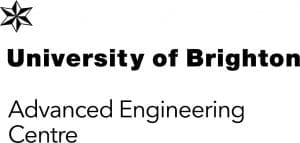Research based on the Sussex towns of Steyning and Bramber showed the poten tial of a game-changing renewable energy approach to transport which exemplifies a localised ‘circular economy’ model by creating beneficial usage for what would otherwise be a highly damaging waste product for the environment.
tial of a game-changing renewable energy approach to transport which exemplifies a localised ‘circular economy’ model by creating beneficial usage for what would otherwise be a highly damaging waste product for the environment.
The study showed how turning to upcycled biomethane fuel not only dramatically cut lifetime greenhouse gas emissions from heavy goods vehicles, but also acted to offset the damaging effect of these emissions on a broader scale. Furthermore, improvements in this application showed more potential than other green technologies such as compressed natural gas (CNG) or electrification for these vehicles.
Deploying upcycled biomethane achieved a lifetime reduction in emissions of around -250%. A reduction of 100% would equate to Net Zero, so -250% means we are not only eliminating the overall emissions escaping to the environment from our HGV – we are also offsetting the emissions from another 1.5 HGVs operating on diesel, achieving – a total reduction of around 2.5 HGVs. The EV system reduced lifecycle system emissions of the diesel vehicle by around 50%. This technology provides a realistic approach to ensuring our logistics industry contributes to climate repair.
Dr Gareth Milton, Chief Engineer at Ricardo:
“These exciting results provide a clear and realistic pathway that could accelerate the decarbonisation of heavy goods vehicles. Hauliers want to reduce the carbon footprint of their operation. However, they make money when their trucks are on the road delivering goods, not when they are stationary. As a world-expert in clean, efficient energy and systems and a trusted engineering advisor to many of the world’s biggest vehicle manufacturers, Ricardo understands the importance of solutions that have a positive effect for transport right now. The sector wants technology solutions which will lower emissions, maintain freight capacity, are cost-effective, and are easily applicable to heavy goods vehicles. Biomethane fuel is a technology which we believe will enable fleet operators to keep on trucking, providing their sterling service keeping the nation fed.”
Dr Penny Atkins, Principal Research Fellow in the University of Brighton’s Advanced Engineering Centre, said:
“This research shows that biomethane upcycling is a promising solution to decarbonise difficult to electrify sectors like heavy duty freight, or agricultural machinery. This local approach to production of sustainable fuels would see feedstocks entering the value chain that would otherwise be wasted, increasing the supply of these vital scarce resources. The University of Brighton is looking forward to working with Ricardo on the research and development needed to turn this concept into reality, supporting the UK’s path to net zero.”
Decarbonising heavy-duty trucks has previously been challenging due to high journey power and energy requirements. Upcycled biomethane, however, can provide major reductions in greenhouse gas emissions from the UK’s commercial haulage fleet. Furthermore, the novel upcycling solutions presented in the new research offer a lower cost route to GHG reduction compared to a mass programme of vehicle electrification.






Leave a Reply